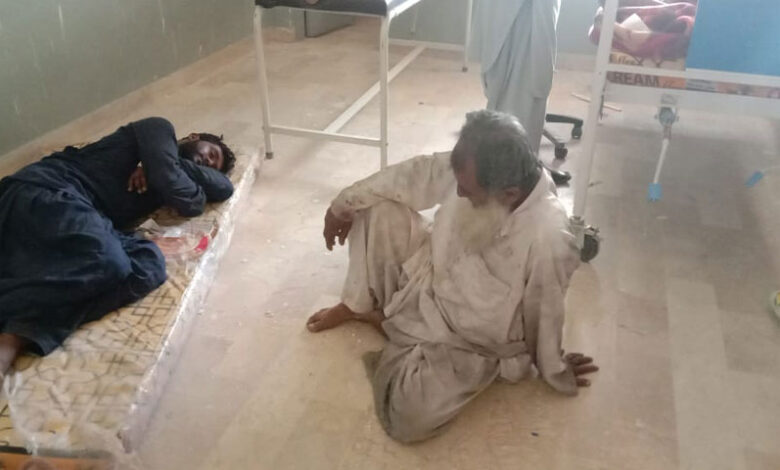Health Sector in Balochistan Struggles with Staff Shortages and Inadequate Facilities

Islamabad:Balochistan, a province long trapped in the grip of numerous challenges, is witnessing a steady decline in almost every sector, and health services are no exception. The province is grappling with a severe shortage of medical staff and a lack of essential facilities, which highlights the inefficiency of the government’s performance in addressing the public health crisis.
According to the Department of Health, Balochistan has a total of 1,634 health centers, including 761 Basic Health Units (BHUs), 28 District Headquarters, 8 hospitals, 7 care hospitals, and other health centers. However, 78 of these health centers are completely inactive. There are currently 3,530 vacant positions for medical staff, with 420 out of 600 specialist doctor posts unfilled. In total, only 180 specialists are working across the province. Additionally, there are vacancies for 2,178 doctors, 745 dental surgeons, 745 teaching staff, 187 health management staff, and 420 specialist cadres.
**Doctors Prefer Posting in Quetta Over Rural Areas**
One of the main issues faced by the health department is the tendency of doctors to prefer working in Quetta over the more remote areas of the province. This has resulted in an excess of medical staff in the capital. According to the statistics, 236 additional doctors have been deployed in Quetta’s government hospitals, including 126 doctors at Civil Hospital Quetta and 110 at Bolan Medical Complex (BMC), despite there being no such approved posts.
**Experts’ View: Health System in Chaos**
Health experts argue that the shortage of medical staff has led to the collapse of the health system in the province. In remote areas, while buildings, beds, and machinery are available, the lack of qualified medical staff has rendered millions of rupees worth of equipment useless. Consequently, patients from these areas travel to Quetta for treatment, overwhelming the two major government hospitals in the city. This influx of patients leads to long waiting times, making it difficult for the medical staff to provide quality care, ultimately hindering patient recovery. As a result, private hospitals are thriving, taking advantage of the shortcomings in the public healthcare system.
**Health Minister Addresses Staffing Shortages**
Balochistan’s Provincial Health Minister, Bakht Kakhar, addressed the issue of medical staff shortages, stating that numerous vacancies in the health department have existed for years, including those for doctors, nurses, and paramedics. Kakhar explained that appointments for posts in Grade 16 and above are handled by the Public Service Commission (PSC), while lower-grade positions are often delayed due to court orders that impose stay orders on the hiring process. As a result, these vacancies remain unfilled.
Before Kakhar assumed office, the Balochistan Chief Minister had made a decision to fill these vacant positions, and committees at the district and divisional levels were formed to oversee the recruitment process. Kakhar further explained that for Grade 17 doctor positions, the government had devised a process where doctors would initially be hired on a contractual basis, and then undergo exams through the PSC for permanent appointments.
**A Plan for Reforms in the Health Sector**
Bakht Kakhar acknowledged that essential healthcare services cannot be provided unless the medical staff is available in hospitals. To address these challenges, the provincial health ministry is working on a roadmap to introduce reforms in the healthcare sector. The goal is to implement changes within the next three months that will significantly improve the department’s functioning. The health ministry also plans to establish a system for ensuring the availability of medicines and other necessary facilities in hospitals, ensuring continuity of services regardless of personnel changes.
The situation in Balochistan’s health sector remains dire, and while efforts are being made to address the staffing issues, it is clear that systemic changes and more robust recruitment processes are required to meet the growing healthcare needs of the province.






